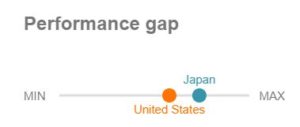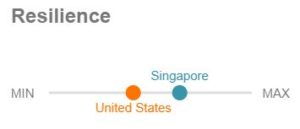National Center on Education and the Economy Profiles International Odds-Beaters: Examining Japan and Singapore
By Catherine Kramer
The National Center on Education and the Economy (NCEE) examined international educational systems, highlighting two countries – Japan and Singapore – for promoting equity among marginalized populations.
According to NCEE, in Singapore and Japan, 49% of the most economically disadvantaged students performed at the highest level on an international assessment. This is compared to 32% in the United States. These international odds-beaters offer lessons for the U.S.
Supports for Academically Struggling Students in Japan
In Japan, young people who are struggling academically receive additional supports in their classrooms. This allows them to stay with peers rather than be channeled into different tracks or alternative settings.

Expectations that young people should support one another is also a priority and communicated in the classroom. Constant communication and involvement of parents is another hallmark approach common in Japan. Read more in the profile of Japan from NCEE.
Connections to New York’s Odds-Beating Secondary Schools
Many of these approaches emerged in NYKids’ College and Career Readiness Study. Several odds-beating schools prioritized offering an array of supports to enhance student learning. Even those who were struggling academically would have comparable opportunities to their high-achieving peers. In Maple Grove, incorporating peer supports was an important part of the development of those who provided the support and those who received it. And at Sherburne-Earlville, as well as many other odds-beaters, connecting with parents was emphasized and relationships continuously cultivated.
Equity-Focused Policy in Singapore
In Singapore, schools are funded on a per student basis to avoid disparities in resources across schools. Additional funds are provided to economically disadvantaged youth, their schools, and their families to fund enrichment activities.

Councils are organized in each community to work directly with families in need of additional support. Local councils also exist to support families from specific ethnic groups. Read more in the profile of Singapore from NCEE.
Learning from International Odds-Beaters
Practices in Singapore offer insights into how equity can be promoted – not only through approaches within the school to address individual academic outcomes – but through policies encouraging community responses to disadvantage.
To this point, concerns about funding inequities in schools across the United States have been heating up in discussions among policymakers and researchers.
In New York, odds-beating secondary schools like Crown Point and Freeport, are recognizing the importance of community in delivering necessary supports to young people, especially those experiencing social marginalization or economic disadvantage. The approach in Singapore offers an example of enacting and implementing policy to organize communities in support of families.
